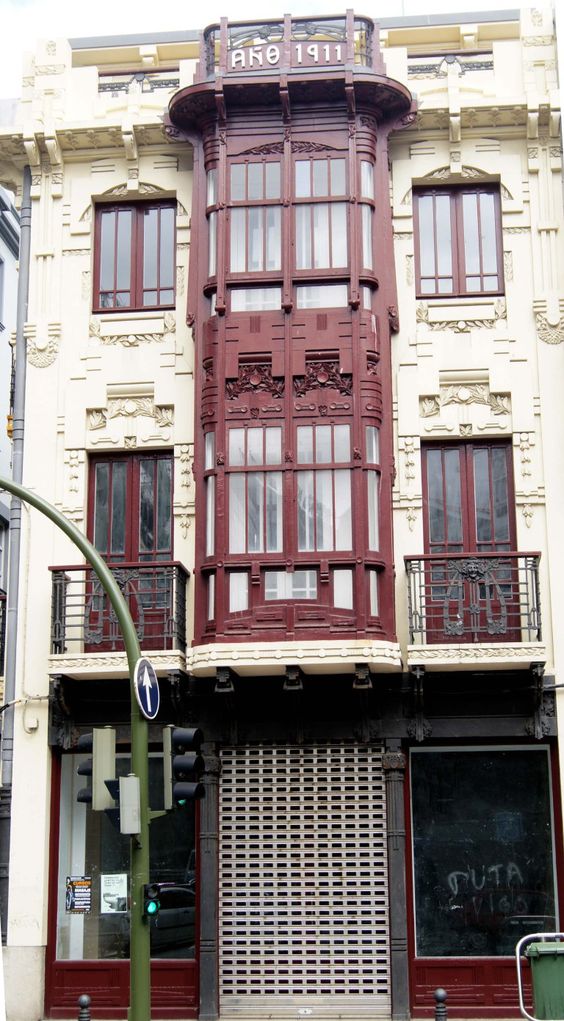#16380. Elegant Art Nouveau Facade from 1911 with Distinctive Bay Window

The image showcases an impressive historical facade of a building dated 1911, as indicated by the inscription at the top. This is an excellent example of Art Nouveau architecture from the early 20th century, featuring a characteristic combination of decorative elements and functionality.
Of particular note is the central bay window executed in burgundy-brown tones, which creates a striking contrast with the cream background of the main facade. This semi-cylindrical bay window extends through the second and third floors of the building, culminating in a decorative crown. The window frames of the bay are divided by wooden mullions typical of Art Nouveau, creating a rhythmic geometric pattern.
The facade is richly adorned with Art Nouveau stucco elements – floral ornaments and geometric motifs that give the building an elegant appearance. The ground floor has a commercial purpose with characteristic shop windows and roller shutters, typical of early 20th century urban architecture.
When designing a modern facade, several techniques can be borrowed from this historical example: the use of bay windows to increase interior space and create an architectural accent, playing with contrasting materials and colors, and the application of decorative elements to create building individuality. A contemporary interpretation of the classic bay window can become an expressive detail of a private home, emphasizing its unique character.